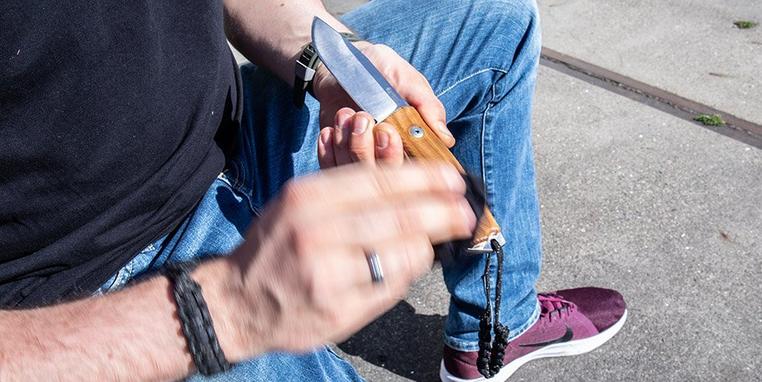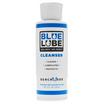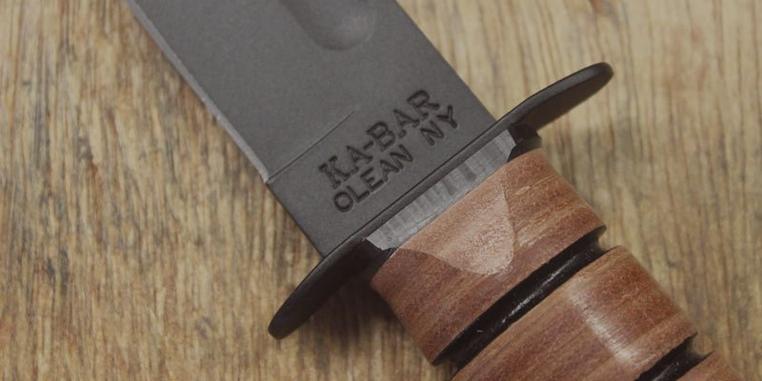Taking care of your fixed knife
Obvious yes, but here it is: fixed knives do not have a lot of moving parts. However, that doesn’t mean you shouldn’t clean it. Likepocket knives, you also need clean survival knives. The difference, however, is that, with fixed knives, you focus more on preventing rust.
Types of steel and rust
So many knives, so many types of steel you might say. You can make a distinction between steel with a high carbon density (carbon steel) and a type of steel with a less high carbon density (stainless steel). As the name might already suggest stainless steel is better equipped against rust. It is, however, not rustproof. When you store a stainless steel knife that is still wet or dirty and leave it there for quite some time it will start to show signs of corrosion.
When you increase the carbon density in steel you will be left with a much harder type of steel that can be grinded down to a very sharp knife. However, the downside of such a high carbon density is that the corrosion resistance decreases dramatically. For this reason it is important to take action!
Cleaning a fixed knife
To prevent rust cleaning the blade is essential. You, of course, immediately clean your knife after you have used it, insofar as the situation allows you to. However, it cannot be avoided that in time dirt accumulates around the crop and jimping. To remove this dirt simply grab a skewer to remove the dirt.
It could occur that you find rust on your blade. Fortunately this isn’t the end of the world because you can simply sharpen it off. For it you can use your favourite sharpening method.
Greasing a fixed knife
To prevent the knife from quickly showing signs of rust you can grease it. Especially when you do not use your knife for a longer period of time it is essential that you try to prevent rust. With Benchmade Blue Lube Cleanser or with a Marine Tuf-Cloth from Sentry Solutions you will make sure that your knife is properly protected against rust. Apply the Benchmade Blue Lube over the entire surface of the blade and spread it out evenly with a clean piece of cloth.
When you properly take care of your knives you will surely kick rust to the curve!
Carbon steel and coating
In order to protect carbon steel from rust, it is often enhanced with a coating. This is something that we see a lot with 1095 carbon steel, a type of steel commonly used by ESEE. This coating ensures that most of the blade is protected. However, the edge and any potential damage to the coating will still be vulnerable to rust. As such, these knives are best maintained with a little love. Besides the huge amount of steel types, there is also an enormous amount of different coatings. Just like with steel, each coating has its own strengths. All coatings protect the steel from rust, but of course not a 100%, so whatever coating the knife is enhanced with, eventually the knife needs to be cleaned.
















?%24center=center&%24poi=poi&%24product-image%24=&fmt=auto&h=500&poi=%7B%24this.metadata.pointOfInterest.x%7D%2C%7B%24this.metadata.pointOfInterest.y%7D%2C%7B%24this.metadata.pointOfInterest.w%7D%2C%7B%24this.metadata.pointOfInterest.h%7D&scaleFit=%7B%28%24this.metadata.pointOfInterest%29%3F%24poi%3A%24center%7D&sm=c&w=1208)
